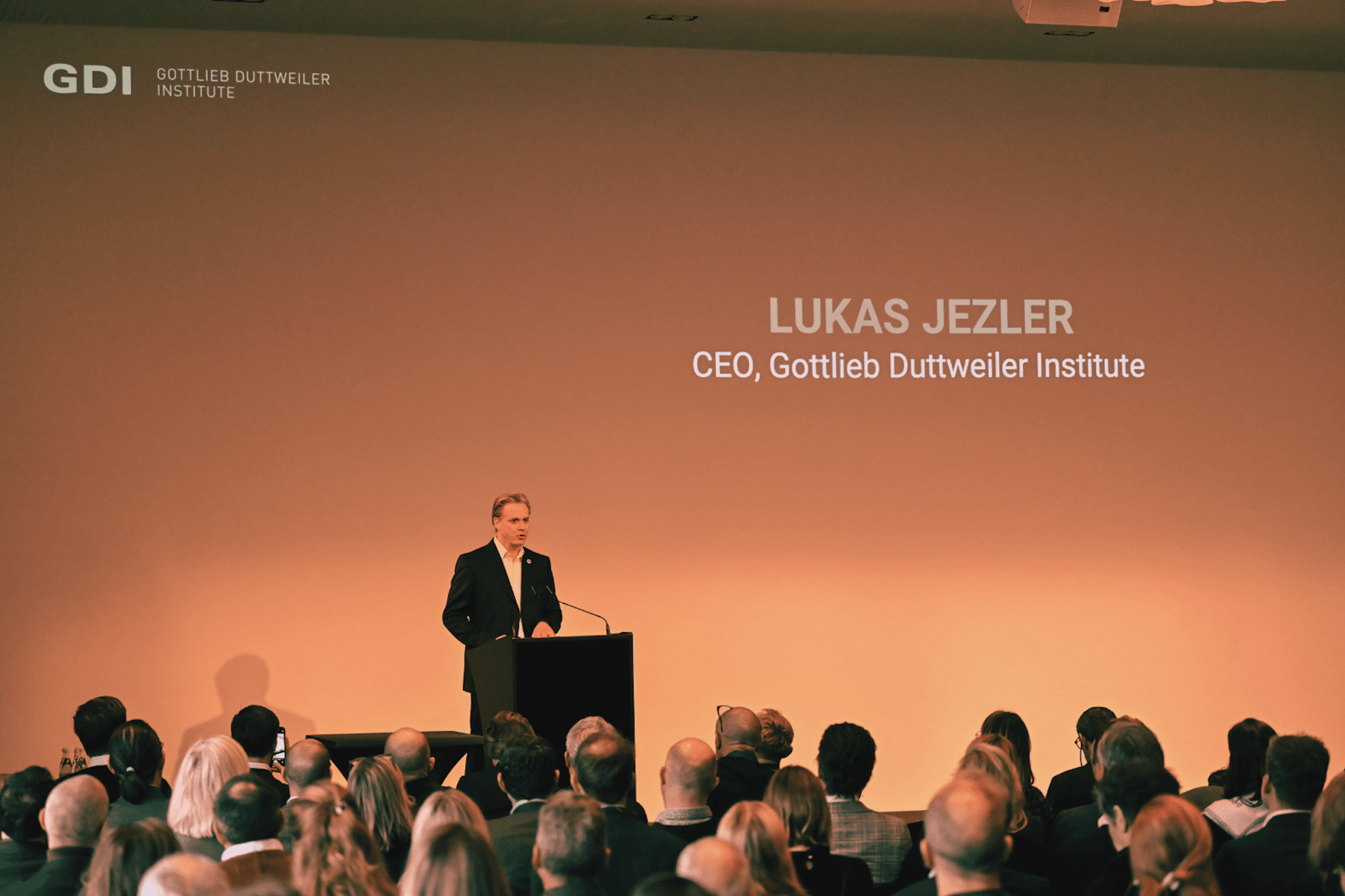AI and the Transformation of the Global Working World
17 März, 2025 | Aktuell Allgemein
The world of work is facing an unprecedented upheaval, accelerated by the rise of artificial intelligence (AI) and generative technologies. At thebrokernews, we believe that this change brings both challenges and opportunities. While some critics fear that AI is destroying jobs at a shocking rate, we can also seize the opportunity to create a productive and inclusive working environment.
On the occasion of the 21st European Trend Days, the Gottlieb Duttweiler Institute (GDI) in Rüschlikon invited guests to an interesting event on 12 March 2025. Under the title ‘Highway to Heaven? How AI Transforms Society and Work’, illustrious people talked and discussed the future of work with AI and the perspectives for a ‘world without work’ tomorrow. As technological progress sets the course for work, the economy and society, the focus is on human creativity, which can become the decisive success factor.
Upheaval and progress
Historically, every major technology industry has brought about both disruption and progress. The one from the steam engine to the internet led to the creation of new industries and the disappearance of others. AI is following this pattern, but at an alarming rate that makes it difficult for many companies and employees to keep pace.












Greater accessibility
Renowned Professor Dr Carl Benedikt Frey of the University of Oxford puts it succinctly: ‘In fact, AI is already automating tasks in every industry, from law to journalism.’ This raises the essential question: are we using this technology to deepen inequalities, or are we creating new paths to prosperity?
One of the most significant effects of AI is the lowering of barriers to entry into various professional fields. Generative AI tools enable people with less formal training to take on tasks that previously required years of experience. For example, AI-powered development tools allow novice programmers to create software at a scale previously reserved for experienced professionals. This phenomenon makes many fields, such as customer support and financial analysis, more accessible.
More project-based hiring models
Nevertheless, this democratisation of knowledge also raises concerns. Companies can use AI to outsource in-demand jobs overseas, which can lead to a convergence of wages between different regions, but at the same time endangers job security in traditionally high-wage economies. The increase in digital gig work through AI-powered platforms shows that companies are increasingly relying on project-based hiring models instead of maintaining large, permanent teams.
Should the way we think about employment be reconsidered? Instead of focusing only on the loss of jobs, should we be concentrating on reinventing jobs? AI could create a new middle class of digital workers, but it is the responsibility of policymakers and companies to ensure that these jobs offer stability and fair wages.
Reforming the education system
The challenges of the future also require a reform of the education system. Professor Manu Kapur describes the need to train specialists who can apply adaptable knowledge and creativity. ‘The focus should be on problem solving, not just on memorising information that AI can provide at lightning speed.’ Here, it is crucial to develop learning methods that promote critical thinking and support the creative application of knowledge.
The urgency of this situation is also apparent to Professor Daniel Susskind of King’s College London: ‘Employees are under the same automation pressure that workers have known for decades. We need to rethink the structures of employment and seriously consider alternative models.’
But there is also hope. Professor Douglas Rushkoff argues for a humanistic approach to AI: ’This technology should expand human potential, not replace it. If we design AI to complement human intelligence, we can create a future where work remains meaningful.’
Governments and educational institutions have a crucial role to play in preparing the workforce for this new reality. Uncertain times call for policies that support lifelong learning, retraining projects and the ethical use of AI.
Boosting human potential
AI’s ultimate influence will depend on the decisions we make now. Responsible use of these technologies can help expand human potential and create new opportunities across all industries. The challenge is to foster collaboration among businesses, workers and policymakers to shape a fair, inclusive and sustainable future of work.
By using AI as a tool not only to increase efficiency but to empower human capital, we can chart a purposeful course into the future. Working together on this future, we can achieve a perfect symbiosis between technology and humanity.
Binci Heeb
Also read: The transformative power of embedded insurance in the age of AI




